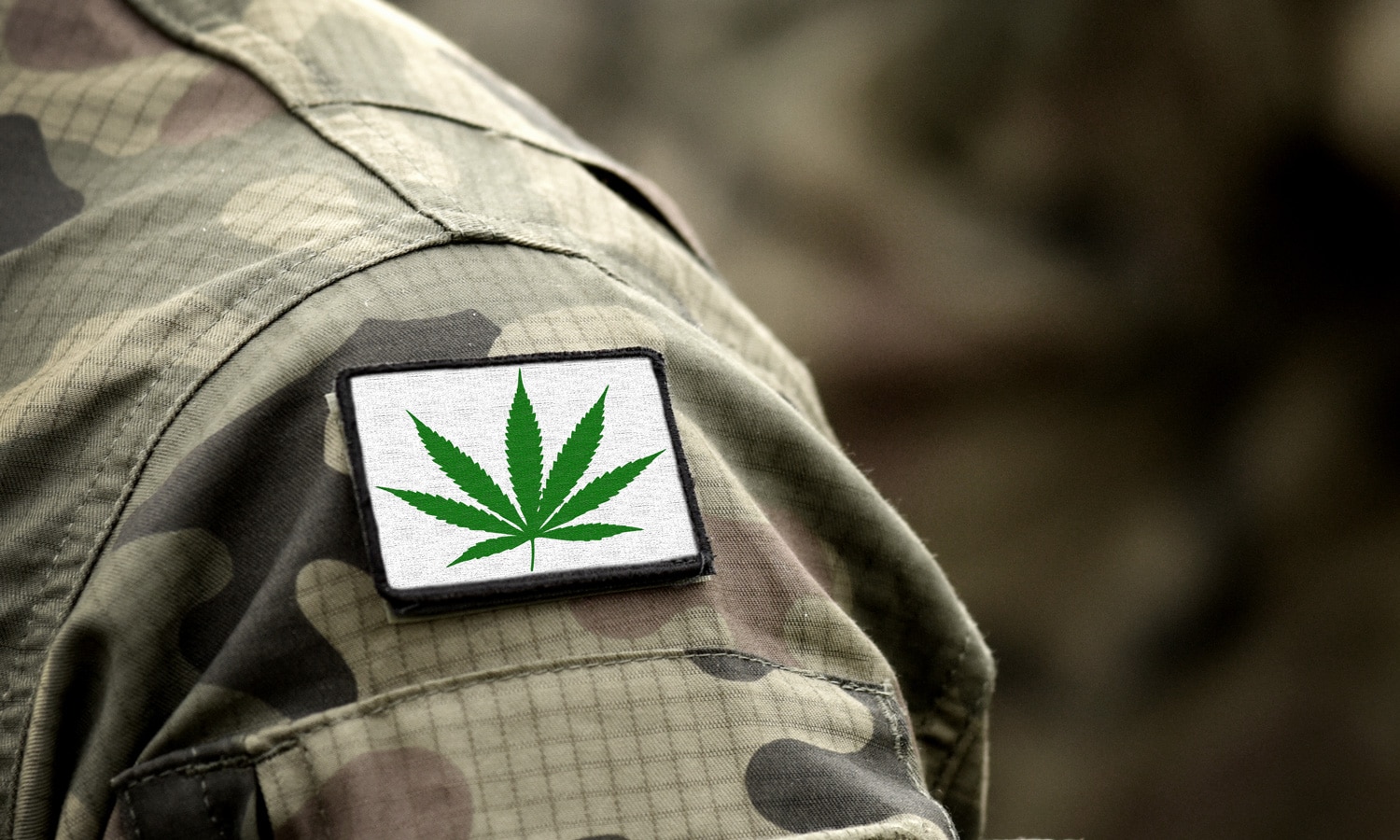
Biden’s cannabis pardons don’t apply to the troops, but there’s a silver lining
Through
President Biden last week announced a historic move: pardoning all previous federal offenses of simple cannabis possession. It is estimated that about 6,500 Americans will benefit from the action, while about 40,000 people who have been sentenced at the state level will remain unaffected unless all state governors listen to Biden’s suggestion and do the same.
What about the military?
It turns out Biden’s cannabis pardons don’t apply to members of the US military, a White House official told Military.com.
Photo by DerwoodPhotography/Getty Images
A Biden administration representative confirmed to the outlet that the president’s pardon “does not extend to UCMJ offenses,” citing the Uniform Code of Military Justice — the federal code enacted by Congress that applies to military service members.
While it is true that the President has autonomous authority to amend some sentences under the Manual for Courts-Martial, Congress must make significant reform of the Uniform Code of Military Justice.
According to the Manual for Courts-Martial, a charge of cannabis possession can result in a dishonorable discharge, deprivation of salary and a maximum two-year sentence, although in real life it is usually much less.
“It looks like lawmakers have many steps to take before we can even begin to process whatever is coming,” said Pentagon spokesman Maj. Charlie Dietz.
RELATED: Senators introduce changes to legalize medicinal cannabis for veterans
On the plus side, while the presidential pardon won’t help active military personnel or retirees charged under the UCMJ, it would increase the number of applicants who might otherwise not qualify based on their records. According to a Pentagon study, up to 77% of young Americans fail to qualify for military service, with drug and alcohol abuse accounting for 8%.
Eric Carpenter, an associate law professor at Florida International University specializing in military justice, confirmed that the UCMJ is the first agency for military personnel, before federal or state law.
 Photo by Bumblee_Dee/Getty Images
Photo by Bumblee_Dee/Getty Images
Professor Carpenter went on to explain that Biden’s actions provide federal prosecutors across the country with evidence that simple cannabis possession charges are not worth pursuing, which could also help increase the number of people eligible to apply for military service apply.
“This will attract a lot of people to come into the service,” Carpenter told Military.com. “But once they’re in, the UCMJ will relate to them.”
It’s important to note that according to recent surveys, more Americans now smoke weed than cigarettes, and up to 50% of all recruits come from a state where cannabis is now legal, at least for medical purposes.
Military members aren’t the only ones not benefiting from Biden’s pardon
Immigration rights advocates were particularly upset because “this pardon does not apply to individuals who were not citizens and lawful residents of the United States at the time of their crime,” Marijuana Moment reported.
Rep. Alexandria Ocasio-Cortez (D-NY) was one of the first politicians to draw public attention to this problem.
This is really great news.
And for people to truly be freed from having their lives plagued by unjust marijuana convictions, we must work to *delete* records beyond pardons.
Between that and the deplanning of cannabis, we can make great strides for so many communities. https://t.co/cJVAvyOM0n
— Alexandria Ocasio-Cortez (@AOC) October 7, 2022
The Air Force’s recent policy changes
As marijuana use becomes more common each year, some military branches have taken matters into their own hands ahead of Biden’s action and are working on new regulations that would give applicants who test positive for THC a second chance.
RELATED: Air Force, Space Force are giving applicants who test positive for THC a second chance
Recruits who otherwise qualify for the service but test positive for THC at the Military Entrance Processing Stations (MEPS) could be granted a waiver, Maj. Gen. Ed Thomas, commander of the Air Force Recruiting Service, told the Air Force Times in a Interview published in September.
He stressed that applicants who test positive for THC during their time at MEPS would be “permanently” barred from enlisting in the Air Force or Space Force. However, as more states legalize marijuana, the number of THC-positive applicants is increasing.
“We have to be realistic today,” Thomas continued. “We must use common sense”
This article originally appeared on Benzinga and has been republished with permission.

Post a comment: